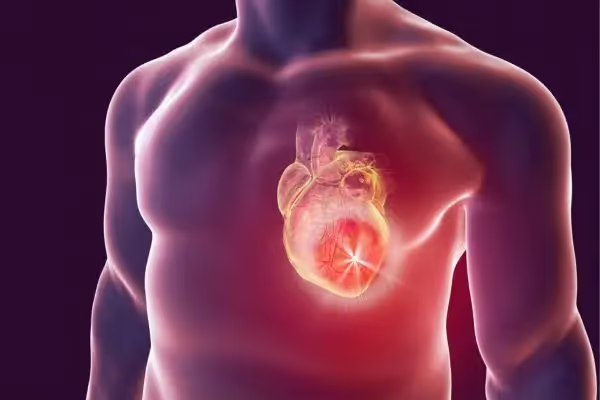How NAD May Help Detect Early Signs of Cardiac Deterioration

In a recent study published in the journal Cardiovascular Research, researchers have discovered that measuring energy levels in the heart may help detect the earliest signs of cardiac deterioration. The study suggests that a molecule called NAD (nicotinamide adenine dinucleotide) could play a key role in this process.NAD is a coenzyme found in all living cells that plays a crucial role in the production of energy. It helps convert the food we eat into ATP (adenosine triphosphate), which is the primary source of energy for our cells. In addition to its energy-producing function, NAD is also involved in many other cellular processes, including DNA repair, immune system function, and regulation of cell death.The researchers in the study found that the level of NAD in the heart tissue of mice decreased significantly as they aged, leading to a decline in energy production and cardiac function. However, by supplementing the mice with NAD, the researchers were able to restore their energy levels and improve their cardiac function.This finding has significant implications for the early detection of cardiac deterioration, as measuring NAD levels could provide a non-invasive and accurate way to assess the health of the heart. By monitoring NAD levels, doctors may be able to detect early signs of cardiac decline and intervene before more serious problems arise.Furthermore, NAD has been found to have other potential health benefits, such as anti-aging effects, improved cognitive function, and protection against neurodegenerative diseases. These findings have led to the development of NAD supplements and treatments, which are becoming increasingly popular among people looking to improve their health and longevity.However, it's important to note that more research is needed to fully understand the role of NAD in the body and its potential therapeutic uses. While the initial findings are promising, it's always best to consult with a healthcare professional before taking any supplements or undergoing any treatments.In conclusion, the discovery of NAD's role in energy production and cardiac function could pave the way for new ways to detect and prevent cardiac deterioration. By monitoring NAD levels, doctors may be able to catch early warning signs and intervene before more serious problems arise. Additionally, the potential health benefits of NAD supplementation are intriguing and warrant further investigation. As always, it's important to stay informed and work with healthcare professionals to make informed decisions about our health.Children, T. H. for S. (n.d.). Changes in how the heart produces energy may be the earliest signal of cardiac deterioration. Medicalxpress.com. Retrieved March 1, 2023, from https://medicalxpress.com/news/2023-02-heart-energy-earliest-cardiac-deterioration.html


.avif)
